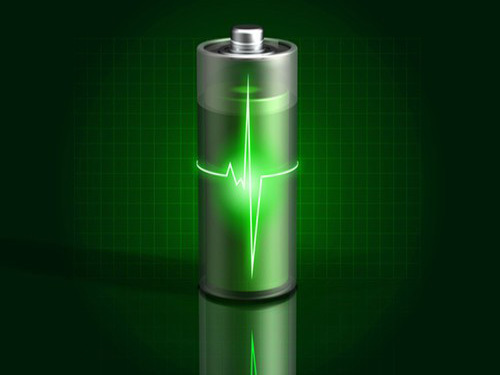
New breakthroughs in battery technology are expected.
The Guardian reported that Dyson invested US$15 million in Sakti3, a US start-up technology company, and is developing new battery technology that is expected to double the battery life of smartphones and allow electric vehicles to recharge more than 600 miles per charge. . Previously, the company has received $50 million in funding from Kholsa Ventures, General Motors and other investors.
The company Dyson, named after his own name, James Dyson, has invested 2.3 billion U.S. dollars, hired hundreds of researchers, and conducted various research work in 30 universities. This investment is definitely not to design a better vacuum cleaner. Dyson wants to develop technology that will enter millions of households in unexpected ways.
Mark Taylor is the director of R&D at Dyson. He believes that Sakti3's technology will "shock the world." This sounds a bit overstated, and Taylor acknowledged that the technology still needs "a few years" to appear on Dyson's products. However, he said that the Sakti3's battery has already surpassed other products in terms of energy density, reaching 1.1 kilowatt-hours per liter, which is twice the performance of lithium batteries.
The British company has already signed an agreement with Sakti3 to jointly develop next-generation solid-state technology that can store twice as much energy as traditional liquid-state rechargeable batteries. This new battery can be used in all aspects, including cell phones and flat-panel batteries, automobiles, and robots. As well as used in renewable energy equipment such as solar panels and wind turbines.
The report pointed out that Sakti3 adopts a solid-state lithium electrode instead of a liquid electrolyte, which makes the battery safer, and at the same time, the energy density is increased, and the endurance capacity is more than double that of current lithium electronics. Sakti3 claims that solid-state batteries can store more than 1,000 watt-per-liter state density, compared to the best conventional lithium batteries that can only reach an energy density of 620 watt-hours per liter. In addition, the new battery must also be cheaper to manufacture and more durable, otherwise it is difficult to commercial production, but also more environmentally friendly. At the same time, solid-state batteries can avoid the potential for overheating and potential explosions in liquid batteries.
The development of technology for mobile devices and electronic products has progressed at an alarming rate over the past 20 years. However, battery technology has not kept pace, and it has also limited the product's play and user experience. The lithium ion technology used in today's best batteries has not made much progress with the products developed by Sony in 1991. Mobile electronic products either have to have thicker or heavier batteries or they must abandon part of their battery life.
Companies from all walks of life, including Apple and Tesla, have been plagued by current limitations in lithium battery technology. Once the solid-state battery is put into practical use, it will inevitably greatly promote the emergence and development of various innovative products.
If Sakti3's products are successful, Dyson will be able to get ahead of the competition and take the lead in using the technology in its own products. Dyson did not make a detailed explanation, but he said that many industries are full of opportunities. For example, an electric drill is a multi-billion dollar industry. Now, even professional-grade drills still require power cords, and the battery cannot provide sufficient power. Through Dyson's digital motors and solid-state battery technology, their products may be as strong as other products on the market. Of course, these are still in the concept.
The key point is that if you can make subversive changes to core technologies such as batteries, small companies can gain the opportunity to catch up with the giants of the industry, and in a fairly mature industry, it is almost impossible to lead by ordinary means. Pose a threat. This is Dyson's train of thought. According to Taylor, the company does not plan on the usual five-year cycle, but it lasts for 20 to 25 years, which is why they maintain good relations with many universities. ?
The above idea was not entirely unexpected. Dyson had already launched a wearable headset 10 years ago. Dyson himself is an outspoken inventor.
Midrange Speakers Car Audio,Midbass Speaker,Shopping Mall Conference Speakers,High Performance Broadcast Loudspeaker
NINGBO RFUN AUDIO TECHNOLOGY CO.,LTD , https://www.mosensound.com